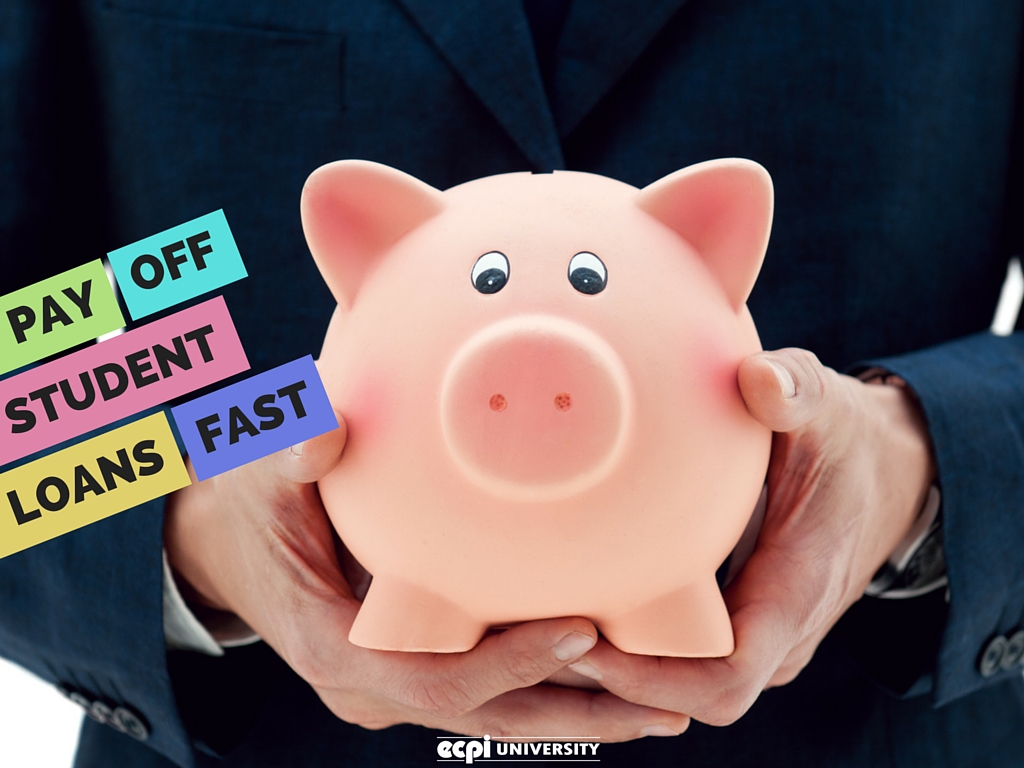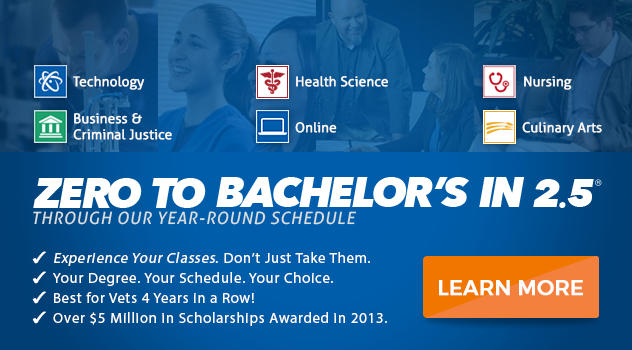
Postsecondary education is still the surest way to a prosperous and secure future, but student loan debt is piling up at an unprecedented rate. In eight years, for example, the percentage of bachelor degree students with $50,000 or more in loans skyrocketed from one percent to 10 percent, says U.S. News & World Report. Getting out from under that pile of debt calls for organization, clear goals, and a strict commitment to a strategy.
Still Valuable
Despite spiraling costs for all forms of postsecondary education (for-profit, nonprofit, private, state, four-year, two-year), the payoffs still outstrip the pain. The experts at Investopedia point out that, for 2012, the median annual wage for a young adult holding a college degree was $46,900 while the young adult with only a high school diploma received only $30,000.
This $16,900 annual difference adds up quickly and compounds, since the degree holder is far more likely to advance into higher-paying jobs throughout a career than the diploma holder.
Still Paying Off
We can agree a college degree pays off in the end, but when is the end of paying off the student debt?
Unlike many other forms of debt, student debt hangs on for years, sometimes decades. Compound interest piles up. To have a reasonable chance of getting out from under the burden, you need a plan:
- Get Organized
- Select Strategies
- Set Goals
- Stay Committed
You may need to forego some luxuries for a few years, but nibbling away at student debt from the very first repayment period will help you end your indebtedness earlier than postponing repayments while you wallow in supposed financial freedom.
Get Organized
You need a crystal-clear picture of your debt burden. You need all your paperwork. You need a magnifying glass (for the fine print). You need calendars (a few calendars: monthly, yearly, and even a five-year calendar to gain clarity). When you signed up for student loans, you had to click through pages of advice. You probably did not read every line, but once repayments start, you need to go through everything and reread it. The advice explains exactly how your repayments are allocated. They explain what happens if you fall behind. They explain your legal obligation to repay the money. Ignoring the fine print does not make it disappear.
Know exactly how much debt you have, and the interest rate of each loan. Most student loans are disbursed by semester, and the rate can change from one loan to another. So, for example, a four-year program may have left you with eight student loan rates from 3.4 percent up to 6.8 percent. You can use a rate calculator to aggregate all the separate loans. This gives you a good idea of the overall interest rate for all the loans together, since in most cases you will be making a single monthly payment to service all the loans.
Winning Strategies to Pay off Your Student Loans
In no particular order, here are a baker’s dozen of strategies to get out of student loan debt fast:
- Make a budget
- Stash a little away from each paycheck for emergencies
- Use automated payments if you have a steady income - through certain lenders, this may even entitle you to an interest rate reduction
- Use “found money” from bonuses, birthdays and poker games to make additional one-time payments
- Live with the cash you have and avoid adding consumer debt
- Pay more than the minimum with every payment
- Earn extra money—If you graduated with a web development degree, offer web site creation services to local businesses
- Spend less—Daily takeout coffee: $5; brewed at home: $0.50
- Make lists—Of priorities, guiding principles, goals, and dreams
- Negotiate—The worst a creditor can say is “No,” so ask if anything can be lowered, from credit card fees to student loan interest rates
- Do your own taxes—Student loan interest is deductible, and free online software will help you nab plenty of other deductions
- Advertise—Make clear to family and friends that you prefer cash instead of things as gifts, since you are dedicated to rapidly paying off student loans (then actually use the cash to pay down the loans!)
- Snowflake—Many smaller repayments reduce principal faster than 12 larger repayments; simply switching to payments of half the monthly amount every two weeks means 26 payments, or two extra per year; paying a quarter of the monthly amount every week jumps you to 52, or four extra per year
Set Goals to Diminish Student Loan Balances
Your repayment schedule is not always the amount you pick, so you have to take control of what you can. For example, you may have the option to pay monthly, but you will accelerate payments and lower interest charges by paying twice a month, or even weekly. This also has the effect of being less of a roller coaster to your bank balance. Whatever frequency you choose, try to pay at least a little more than the minimum.
The main goal is to accelerate payments toward the principal, because that is the source of interest calculations. The faster your principal goes down, the less interest you are charged. Use the calendars to remind yourself of payments, your own pay days, and other debts. Remember some debts are monthly, but some (like quarterly tax payments, real estate taxes, and insurance) may be semiannual or annual. All of these should be duly recorded on calendars to provide you stability and eliminate surprises.
Stay Committed to Your Loan Payoff
You will feel the effects for good and for bad. Any Friday night when everyone else at your new job says, “Let’s go for drinks,” you will check your limited cash and realize how hard paying off the loans can be. “No thanks,” you say, “I need to head home.” Stay committed, however, through thin times. The good effects will show when you check your student loan balances and see they really are diminishing.
Take time before plunging into college to select a school that is reasonably priced, offers access to federal loans, and is fully accredited. ECPI University is one such choice. To see how ECPI University can help minimize your student debt while providing an excellent undergraduate education, contact an admissions advisor today. It could be the Best Decision You Ever Make!
Tomorrow I have a meeting with ECPI University career planner Im so excited to start back school, this fall if everything goes right
— Mercedes Sacramento (@AdoreHer_Pink) October 1, 2014
DISCLAIMER – ECPI University makes no claim, warranty, or guarantee as to actual employability or earning potential to current, past or future students or graduates of any educational program we offer. The ECPI University website is published for informational purposes only. Every effort is made to ensure the accuracy of information contained on the ECPI.edu domain; however, no warranty of accuracy is made. No contractual rights, either expressed or implied, are created by its content.
For more information about ECPI University or any of our programs click here: http://www.ecpi.edu/ or http://ow.ly/Ca1ya.


